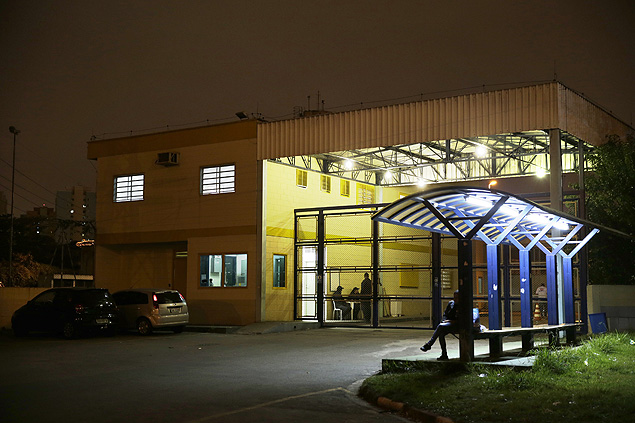Latest Photo Galleries
Brazilian Markets
10h51 Bovespa |
-0,08% | 125.048 |
16h43 Gold |
0,00% | 117 |
10h53 Dollar |
+0,55% | 5,1577 |
16h30 Euro |
+0,49% | 2,65250 |
ADVERTISING
In Youth Offenders Institution in São Paulo, Teenagers Change from 'Empathetic' to 'Immature' in 1 Month
07/22/2015 - 09h08
Advertising
REYNALDO TUROLLO JR.
FROM SÃO PAULO
At Fundação Casa, a youth offenders institution that used to be known as "Febem", a young offender is evaluated as "self-critical" and "empathetic" at the time of his release and as "immature" and "without self-criticism" when he falls back into crime, after just a month on the streets.
This teenager is again admitted and "retrieves" the "self-criticism" and "empathy" in seven months at the institute. After that, the offender is released.
However, two months later, he loses those virtues: "don't recognize his mistakes", breaks the law and returns to the institute for the third time.
These are the Fundação Casa psychosocial reports, essential documents used as basis of judgment.
Folha had access to admission and release reports of eight youngsters in the State of São Paulo.
According to the institution's servers who spoke on condition of anonymity, these cases exemplify how most of the reports are done, regardless of the type of crime the minor has committed.
In one example, a young car thief - after having positive behaviour described in the report - had his name changed in the document, suggesting the excerpt that informs the court of his release may have been copied and pasted from another case.
Court set him free. In two months, he lapsed back into crime and returned to the institution.
As stipulated in Brazil's Child and Adolescent Statute, the reports have played a central role in the educational system, serving mostly as the primary or sole basis of judgment.
These documents are signed by psychologists, social workers, education and health and safety professionals of Fundação Casa.
When the teenager is admitted to the facility, a report that will determine whether he will be imprisoned is done by the provisional unit's team. At the occasion of his release, the report is done where the sentence was served.
Even though there are different teams, in theory, they should observe similar aspects, in order to avoid disparities.
According to Munir Cury, a retired public prosecutor and one of the authors of the Child and Adolescent Statute, sudden variations in so little time indicate that there are problems in these reports.
"These reproduced reports make me see that it is a creation of vacancies," he says.
In February, the institution informed in a letter that it faces "an unprecedented crisis" of overcrowding.
"When a teenager is released, he should be accompanied as an egressed, but Fundação Casa doesn't do it."
In another case, a drug trafficking recidivist, detained in a facility in the metropolitan region of São Paulo, obtained a release report after becoming the target of violence.
His mother told Folha that the unit's director offered her "help" during his detention if he told her of his colleagues' wrongdoings.
He got a reputation of being an informer and was beaten by the other inmates daily. The violence was so unbearable that he was released in five months. His report stated his "evolution".
"Instead of being redeemed, he became angry," says his mother. Reports corroborate her story.
As Folha published in May, the average time of detention in the capital is seven months, according to a survey conducted by the Public Ministry.
The maximum allowed by the Child and Adolescent Statute is three years.
Translated by JULIANA CALDERARI
Read the article in the original language
| Fabio Braga/Folhapress | ||
 |
||
| Fundação Casa, a youth offenders institution in Vila Maria, in North Zone of São Paulo |



